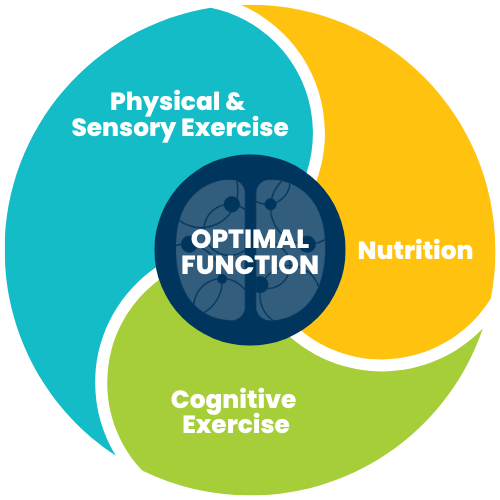Healthy Brain,
Happy Life.
Improve attention, cognition and overall well-being with the Brain Balance Program®
Our integrated approach combines cognitive, physical and sensory training with nutritional guidance to strengthen and build brain connectivity without the use of medication. Stronger connections translate to improved attention, behaviors, and social-emotional well-being.
Brain Balance Program Reviews
Review widgets by Endorsal
Get Started Today
Explore Our Programs
Child Program
For children and teens 4-17
At Brain Balance, we identify developmental strengths and weaknesses to better understand how all aspects of development synchronize to support higher-level brain functions such as the ability to sustain attention, reduce hyperactivity and impulsivity, regulate mood, emotions and behaviors, and learn in the classroom. Reducing developmental gaps helps to reduce challenges in these areas.
Adult Program
For adults 18 and older
Brain health and development impacts us at all ages, not just throughout childhood. Attention, cognition, and executive function challenges can interfere with performance at work and in relationships. The Brain Balance Program for adults is designed to help you strengthen and improve your brain’s functioning - positively impacting many areas of your life including focus, attention, anxiety and memory.
Find a Center
70+ centers & at-home program
Our program is available globally through our online at-home program or through our 70+ centers across the United States.
What Makes Brain Balance Unique
DRUG-FREE
Brain Balance is dedicated to offering non-pharmacological options for addressing challenges. Our program is a holistic approach to changing the brain without medication.
BRAIN-BASED, NOT SYMPTOM-FOCUSED
Our program addresses challenges by creating measurable changes in development and cognition, impacting many aspects of life, rather than temporary symptom management.
COMPREHENSIVE, MULTIMODAL TRAINING
Our program's success lies in its ability to impact multiple interrelated developmental domains simultaneously. Scientifically proven physical, sensory and cognitive exercises that enhance focus, mood, memory, and overall daily behavior.
RESEARCH-BACKED
Research on Brain Balance program outcomes demonstrates consistent improvement in developmental reflexes, motor coordination, rhythm and timing, and visual coordination. These changes are driven by gains in developmental reflexes, motor coordination, rhythm and timing, visual coordination, and sensory perception.
Common Challenges We Help Address
- Distractibility & Attention
- Task Avoidance
- Memory
- Organization
- Attention to Detail
- Follow Through with Work or School
- Time Management
- Organization
- Impulsivity
- Mood & Behavior
- Sensory Processing
- Social Challenges
What Does The Brain Have To Do With It?
Everything starts in the brain. The Brain Balance Program is rooted in the understanding that our life experiences are shaped by brain health and development. We know that disruptions or stressors to the natural course of brain development can impact learning, behavior, and overall well-being. The good news is that the brain is adaptable at any age, thanks to neuroplasticity.
Our holistic, multimodal approach is designed to optimize brain function by fostering the growth of new neural connections and strengthening existing ones. The Brain Balance Program integrates cognitive, physical, sensory, and nutritional elements, acknowledging the interconnected nature of development. We empower individuals to build healthier brains, addressing challenges that hold them back in life and promoting overall well-being.

Promoting and Optimizing Brain Health

The Best of All Methods
Our program incorporates proven methods from cognition, childhood development, and nutrition fields and combines them into a whole-child, drug-free approach.

Backed by Research
Harvard University and Cambridge Brain Sciences research found the Brain Balance Program effectively improves focus, attention and reasoning.

A Personalized Approach
You’ll get the personalized attention and hope-filled support you deserve, with a program designed to fit your needs and goals.
FAQs
How long does the Brain Balance program last?
While the average program length is 5 months, some students require more and, in some cases, fewer sessions. We work with you to build a flexible program that works for your family. Regardless of the length of the program you choose, we include ongoing maintenance and optimization consultations to ensure your continued success in life after Brain Balance.
Is the Brain Balance program backed by research?
How does the Brain Balance program work?
Do you need a diagnosis to start the program?
Do you work with specific disorders?
While you don't need a label or formal diagnosis to benefit from the Brain Balance program, many of our students are struggling with a range of diagnoses including:
- Attention Deficit Hyperactivity Disorder (ADHD)
- Autism Spectrum Disorder
- Oppositional Defiant Disorder (ODD)
- Processing Disorders – Auditory (APD), Visual, Sensory (SPD)
- Learning Disorders (Dyslexia, Dysgraphia, Dyscalculia, Dyspraxia
I don't see a center near me, can I still enroll in the program?
Don’t see a location near you? You can still enroll in the Brain Balance Program. You can complete the at-home program with virtual coaching and support. We'll ship you everything you need to complete your program. Simply fill out a form and we’ll show you how you can get started.
From Our Blog
Navigating IEPs, 504s, and Special Education Needs
| November 15, 2024
Understanding the complexities of special education can be a daunting task for parents. The recent Brain Balance webinar, featuring Chief Program..
A Complete Guide to Body-Focused Repetitive Behavior (BFRB)
| October 4, 2024
In moments of stress, anxiety, or even sheer boredom, many of us may find ourselves picking at a hangnail or twirling our hair. But when does simple..
Late Onset ADHD: Can You Develop ADHD Later in Life?
| September 26, 2024
Late Onset ADHD: Can You Develop ADHD Later in Life? Neurodiversity, generally, and attention deficit hyperactivity disorder (ADHD) in particular,..
